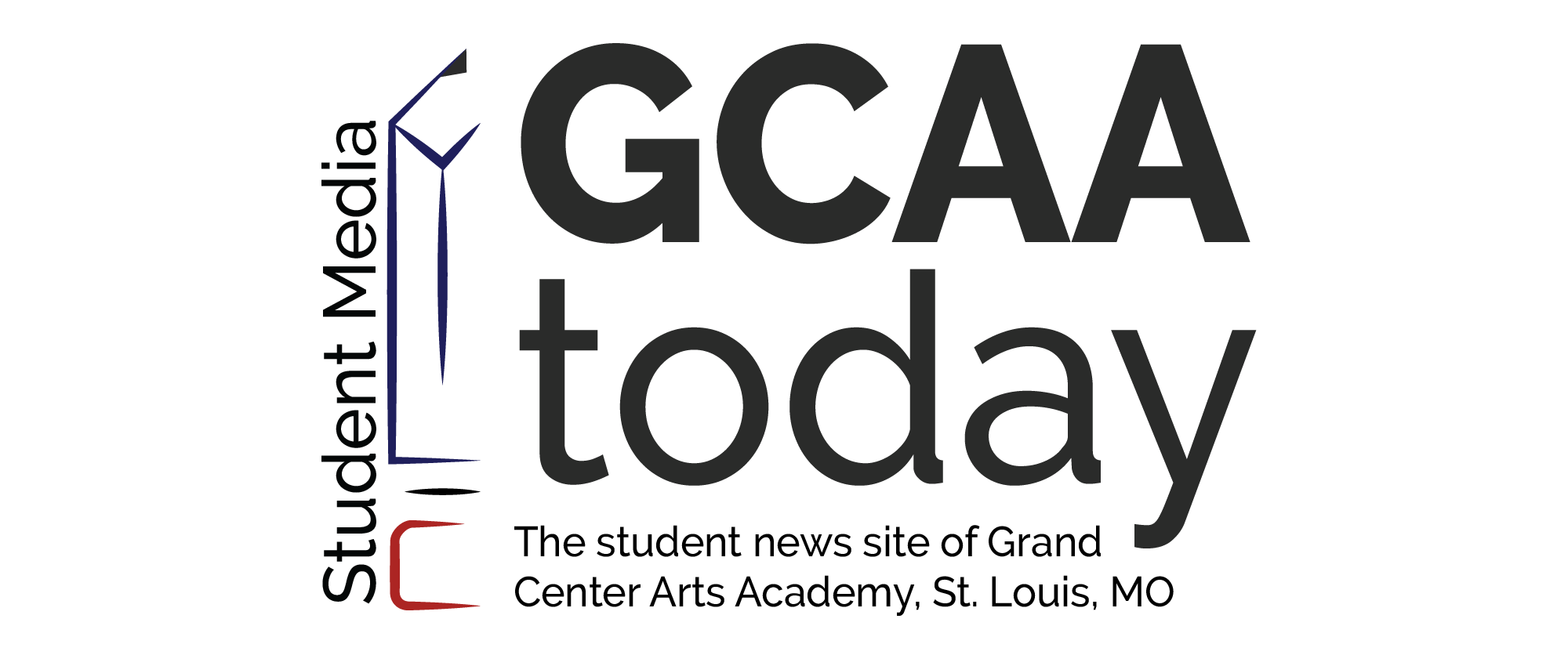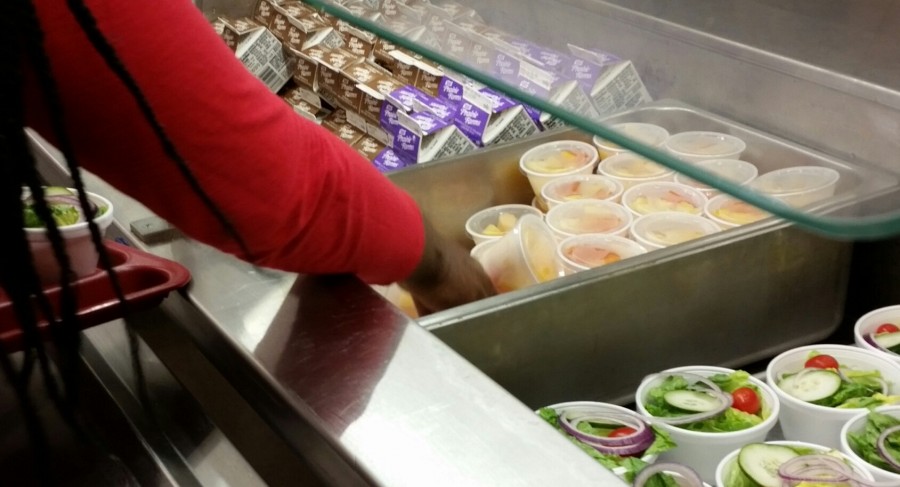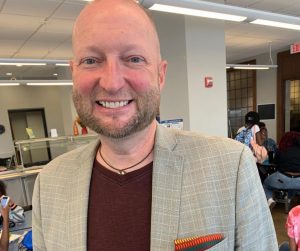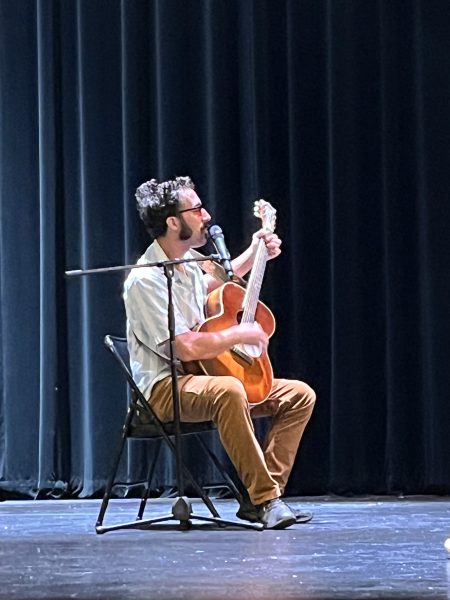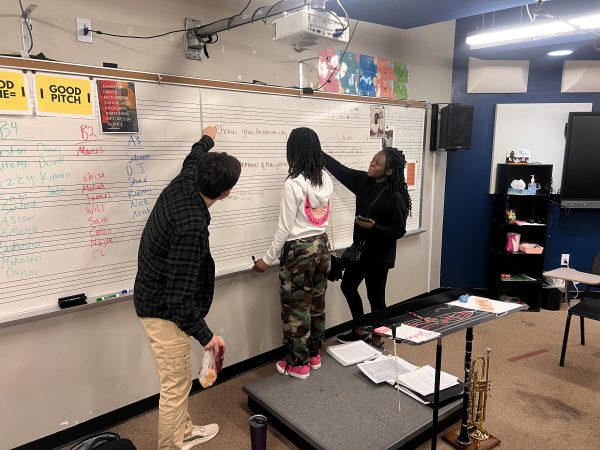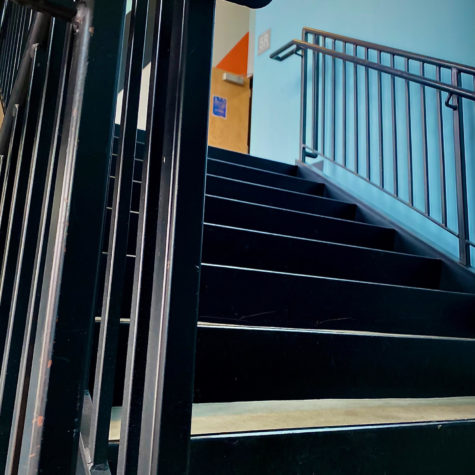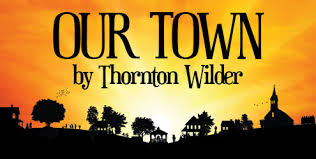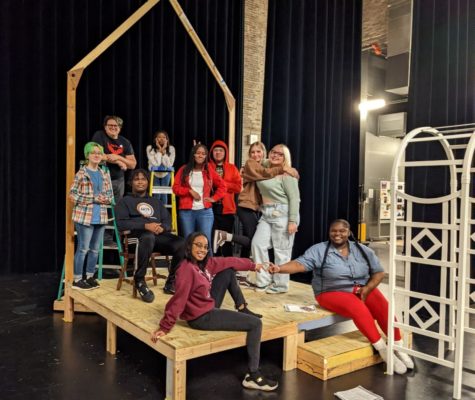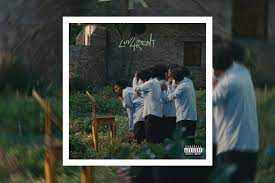GCAA Vegetarians Speak
March 12, 2015
According to the 2009 Vegetarian Resource Group Harris poll, 3% of teenagers in the U.S. consider themselves to be vegetarian.
Although students may not always see it, this trend exists at GCAA just as well as anywhere else. Sydney Hollins-Lewis is just one example, having been a vegetarian for four years.
“When I decided I was going to be a vegetarian, it happened really abruptly, like, the next day, I just stopped eating meat. And my family didn’t think I was gonna go through with it, but my motives for my decision outweighed anything I could ever be tempted by,” she said.
Hollins-Lewis became a vegetarian for a few different reasons. She explained that it was a mixture of seeing several awareness videos about the meat and dairy industries and watching her sister, who was very young at the time, learn about the origins of their food.
“There are people who are living so much healthier, so much longer, so much happier without [eating animals], and I couldn’t have that guilt on my conscience. It was too much for me, so, I was like, I am no longer going to eat animals,” she said.
Animal rights play a huge role in many people’s decisions to become vegetarian. Studies show that 54% of vegetarians switched their diets for the purpose of animal welfare.
“I enjoy knowing that I’m living in a way that isn’t harmful to other beings on this planet,” said Hollins-Lewis. “Like you can love certain animals but eat others? I honestly don’t get that. I love all animals.”
Some restaurants or businesses, such as Chipotle, choose meat from farms that raise the animals in the most healthy way possible.
Chipotle’s website says, “Delicious, affordable food can be produced without exploiting the farmers, the animals, or the environment. The Chipotle Cultivate Foundation supports people and organizations that are working to develop an affordable, sustainable pasture-based system of animal production in the United States.”
Despite these efforts, many vegetarians remain unmoved.
“It’s better how the animals are treated while they’re living, but at the same time they’re still being slaughtered for our consumption. Like, they’re lives were taken away so we could enjoy 30 minutes of ours,” said Hollins-Lewis.
Many people who are vegetarian struggle with other people’s opinions on the subject.
“The most difficult part about being vegetarian is people’s…the false pretenses they place upon you,” she said. “Kinda like, ‘Oh, you’re weird’, ‘Oh you’re just an animal lover’, ‘Don’t you love bacon?’, ‘Don’t you miss meat?’ Like, I’m fine with curiosity, but what I can’t stand is the willful ignorance, when people chose to stay in the dark about things.”
Some vegetarians at GCAA complain that the school does not adequately provide meals for these vegetarians. This seems to be an issue of great controversy between students and faculty.
“It is a priority,” said Mona Harrison, a lunch staff member at the school. “We had a lot of students here that didn’t eat meat, or a lot of them were on certain diets, so we try to accommodate them as much as we can.”
However, Hollins-Lewis sees a flaw in the school’s provisions for vegetarians.
“Our options are a peanut butter and jelly, like a slice of pizza, and, like, maybe a salad. Those things are- it’s great that they’re there, but every day it’s not a sustainable diet. Like, it doesn’t have the protein in there,” she argues. “And I don’t think it’s a thing out of spite; they’re just uneducated about the the situation, and how many students it actually affects, and the importance that is held there.”
India Cooper, another vegetarian student, disagrees that this is a problem.
“They expect you to eat breakfast at home, and dinner at home, and that’s like- you get protein there, so I think them trying to get protein into you isn’t a huge focus goal, or at least for vegetarians,” said Cooper.
Given the number of vegetarians in the United States today, this group of people may often be misunderstood, misheard, or given false pretenses. However, certain teens at GCAA have much to say about their diet, or as Hollins-Lewis puts it: “Really it’s more than a diet-it’s a lifestyle.”


